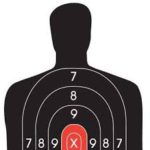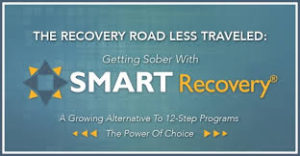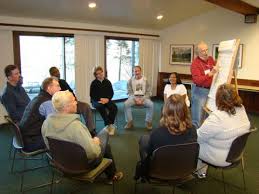It’s been 2 1/2 weeks since I put up that summary of Maia Szalavitz’s excellent article. Busy time since then. But now I’m in Boston, visiting my friend Matt Robert and a few others, and sitting in on SMART recovery meetings. Matt has been a SMART facilitator for over six years. I came here to learn more about SMART and to hang out and relax with a dear friend.
A couple of things happened recently. First, I haven’t told you that my review article (summarized here) was finally published in the New England Journal of Medicine. It came out roughly two weeks ago. This is a very high-impact journal — (approximately) every doctor in the Western world subscribes to it. And I’m pretty proud that I published a paper criticizing the disease model of addiction in a medical journal. I’m going to tell you more about that paper (and the blowback it provoked) in an upcoming post. But for now I feel two things: (1) that’s the last scientific journal article I’m ever going to write, because it takes so much f…ing effort, and (2) I’m really good at rational argument — I’m a pro!
But my most moving experience lately wasn’t resting on my laurels. It was the realization that I’m not such a pro when it comes to influencing people’s thinking, changing their minds.
I was talking with someone I know here in Boston… Just a conversation in the backseat of a car. We were talking about this and that, and then the topic of gun ownership came up. Both Jane (pseudonym) and I are lefties, very much opposed to  the proliferation of gun ownership in the US and the political voices that advocate it. I guess you could say it’s an emotional topic for both of us. But we differed on a sort of thought experiment: What would it be like if people could make guns on a 3D printer and those guns were entirely untraceable? Would that be a bad thing because there’d be more guns around (her point) or a good thing because the NRA and its right-wing supporters would lose their influence (my point)? The content of the argument hardly matters. Neither of us had ever thought about plastic guns before. We were speculating, and then discussing, and then debating.
the proliferation of gun ownership in the US and the political voices that advocate it. I guess you could say it’s an emotional topic for both of us. But we differed on a sort of thought experiment: What would it be like if people could make guns on a 3D printer and those guns were entirely untraceable? Would that be a bad thing because there’d be more guns around (her point) or a good thing because the NRA and its right-wing supporters would lose their influence (my point)? The content of the argument hardly matters. Neither of us had ever thought about plastic guns before. We were speculating, and then discussing, and then debating.
Things got heated. Jane said what she thought; I said what I thought. Of course she countered the points I made and I countered the points she made. That’s what an argument is — right? — and arguments can be valuable. But something else was emerging. My motive was no longer to arrive at a consensus or even a conclusion. My motive was to win. I’m  making really good points, I told myself. I’m winning the debate. Through parry and thrust (in the language of fencing) I tried to take her down. To defeat her. All I really cared about was being right.
making really good points, I told myself. I’m winning the debate. Through parry and thrust (in the language of fencing) I tried to take her down. To defeat her. All I really cared about was being right.
 What I didn’t see until the next day was that Jane was hurt. She perceived my arguments as weapons — and indeed they were. I had thought: given competing positions, someone’s going to win, and that’s going to be me. She had thought: why is he putting me down? Why is he trying to cast my opinions as groundless and stupid?
What I didn’t see until the next day was that Jane was hurt. She perceived my arguments as weapons — and indeed they were. I had thought: given competing positions, someone’s going to win, and that’s going to be me. She had thought: why is he putting me down? Why is he trying to cast my opinions as groundless and stupid?
When I realized I’d caused her to feel attacked, I felt like shit of course. But that sensitivity dial had been tuned to zero during our argument.
So what?
I spend a lot of time refuting, invalidating, quashing, debunking the disease model of addiction — as I’m sure you know. The question that confronts me now is how am I  going about it? Do I really want to change the minds of people steeped in medical thinking, addicts who believe they’re ill, their families, their doctors? Or do I just want to win a debate?
going about it? Do I really want to change the minds of people steeped in medical thinking, addicts who believe they’re ill, their families, their doctors? Or do I just want to win a debate?
 So I’m watching Matt facilitate a SMART meeting in Boston last night. SMART sometimes construes itself as “the alternative to AA.” SMART offers psychological tools, such as focusing on one’s own thought patterns and beliefs, and the potential that offers for behaviour change, even by small increments. SMART lends itself to mindfulness practices, it neither shames nor exonerates those who’ve “relapsed.” It is inclusive, it does its best to avoid dogma. And it values honesty and fellowship — as does its sometimes querulous cousin, AA.
So I’m watching Matt facilitate a SMART meeting in Boston last night. SMART sometimes construes itself as “the alternative to AA.” SMART offers psychological tools, such as focusing on one’s own thought patterns and beliefs, and the potential that offers for behaviour change, even by small increments. SMART lends itself to mindfulness practices, it neither shames nor exonerates those who’ve “relapsed.” It is inclusive, it does its best to avoid dogma. And it values honesty and fellowship — as does its sometimes querulous cousin, AA.
But what impressed me more than any of these qualities was the warmth and sensitivity that characterized last night’s meeting. Here were 9 or 10 very vulnerable people, all of whom were “in recovery.” At the start of the meeting they seemed shy and uncertain. Matt’s job was (in part) to encourage them to to review and modify their  thinking habits, to see their substance use more rationally, more comprehensively. But more than that, he was listening carefully to what people said and grasping what they were feeling: their fears, vulnerabilities, and their (often tattered) self-esteem.
thinking habits, to see their substance use more rationally, more comprehensively. But more than that, he was listening carefully to what people said and grasping what they were feeling: their fears, vulnerabilities, and their (often tattered) self-esteem.
The result was a spreading aura of self-acceptance, mutual acceptance, honesty, and empathy. By the end of the meeting, people were smiling and patting each other on the back or hugging and saying “until next week.”
That’s how to change minds — and hearts. Not to pound them with the superiority of one’s logical arguments, grounded in evidence. Who really has evidence for their claims when it comes to the hard questions, like whether it’s best to define addiction as a disease or not?
I still see things the way I see them. (I still don’t want to call addiction a disease.) But maybe I can do a better job of seeing things the way other people see them. Wouldn’t that be valuable? Either in the case of intellectual argument (as in journal articles) or in sharing emotional concerns in the backseat of the car.

Leave a Reply